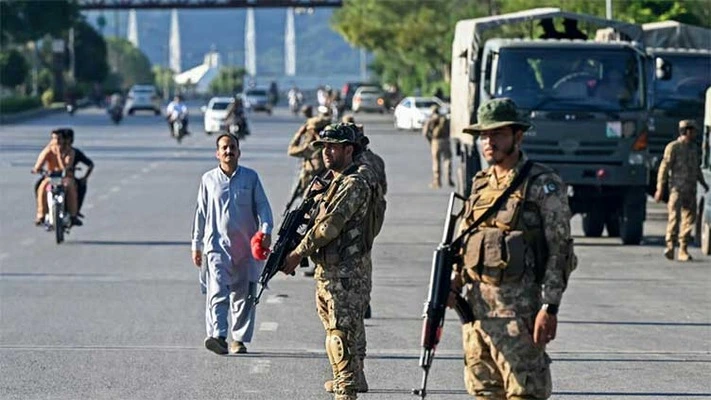ISLAMABAD: The two-day Shanghai Cooperation Organization (SCO) Heads of Government summit concluded successfully in Islamabad yesterday. The summit focused on multilateralism and enhancing Eurasian connectivity. Notable attendees included the PM of China and Russia, top leaders and officials from other member states.
The meeting sent a strong message that Pakistan is open for business and ready to play a central role in multilateral organizations. The summit’s joint communiqué addressed various topics, including commerce, environmental concerns, and cultural exchanges.
A key highlight of the document was the commitment to establish the SCO Development Bank and increase the use of national currencies in mutual settlements. The communiqué criticized the “unilateral application of sanctions” as incompatible with international law. This language appears to be a veiled critique of Western sanctions, particularly those directed at geopolitical rivals like Russia and Iran, both of which are SCO members. Additionally, the statement emphasized the importance of preserving “traditional values and cultural and civilizational diversity.”
Read: SC Dismisses Plea Against 26th Constitutional Amendment After Withdrawal Request
Climate Change
Prime Minister Shehbaz Sharif spoke about climate change, describing it as an “existential crisis.” He also addressed the need for stability in Afghanistan, an SCO member that has not participated in meetings since the Taliban took over in 2021. Furthermore, he highlighted the “ongoing genocide in Gaza,” insisting that it must not be overlooked.
Hosting such a significant multilateral event is routine for many states. However, given Pakistan’s recent challenges—such as security concerns, financial difficulties, and internal political unrest—organizing the summit and ensuring the security of numerous foreign dignitaries was a considerable achievement. Fellow SCO nations acknowledged Pakistan’s efforts, noting that the summit occurred in a “constructive and friendly atmosphere.”
Common Bank, Currency Swaps, and Seamless Regional Connectivity
Translating the SCO’s vision into reality will take time and effort, particularly regarding the common bank, currency swaps, and seamless regional connectivity. The bureaucracies of all ten member states, each with different governance systems, must collaborate to achieve these common objectives, posing a significant challenge. While these goals may be difficult to attain, they are not impossible. For Pakistan, fostering regional connectivity with its Eurasian neighbors is vital for economic growth. The nation cannot afford to remain isolated within the region.
In an increasingly fragmented world, with numerous conflicts smoldering across continents, platforms like the SCO offer states a chance to set aside narrow differences. They can work together towards common objectives that benefit their populations. Instead of viewing this as a resurgence of “bloc politics,” a more optimistic perspective is needed. The SCO represents a significant opportunity for collaborative progress in a world rife with division.
The summit marked a crucial step towards solidifying relationships among member states and promoting shared economic interests. As the world grapples with various challenges, the SCO’s commitment to multilateralism could play a vital role in fostering cooperation and stability in the region.
Follow us on Google News, Instagram, YouTube, Facebook,Whats App, and TikTok for latest updates
